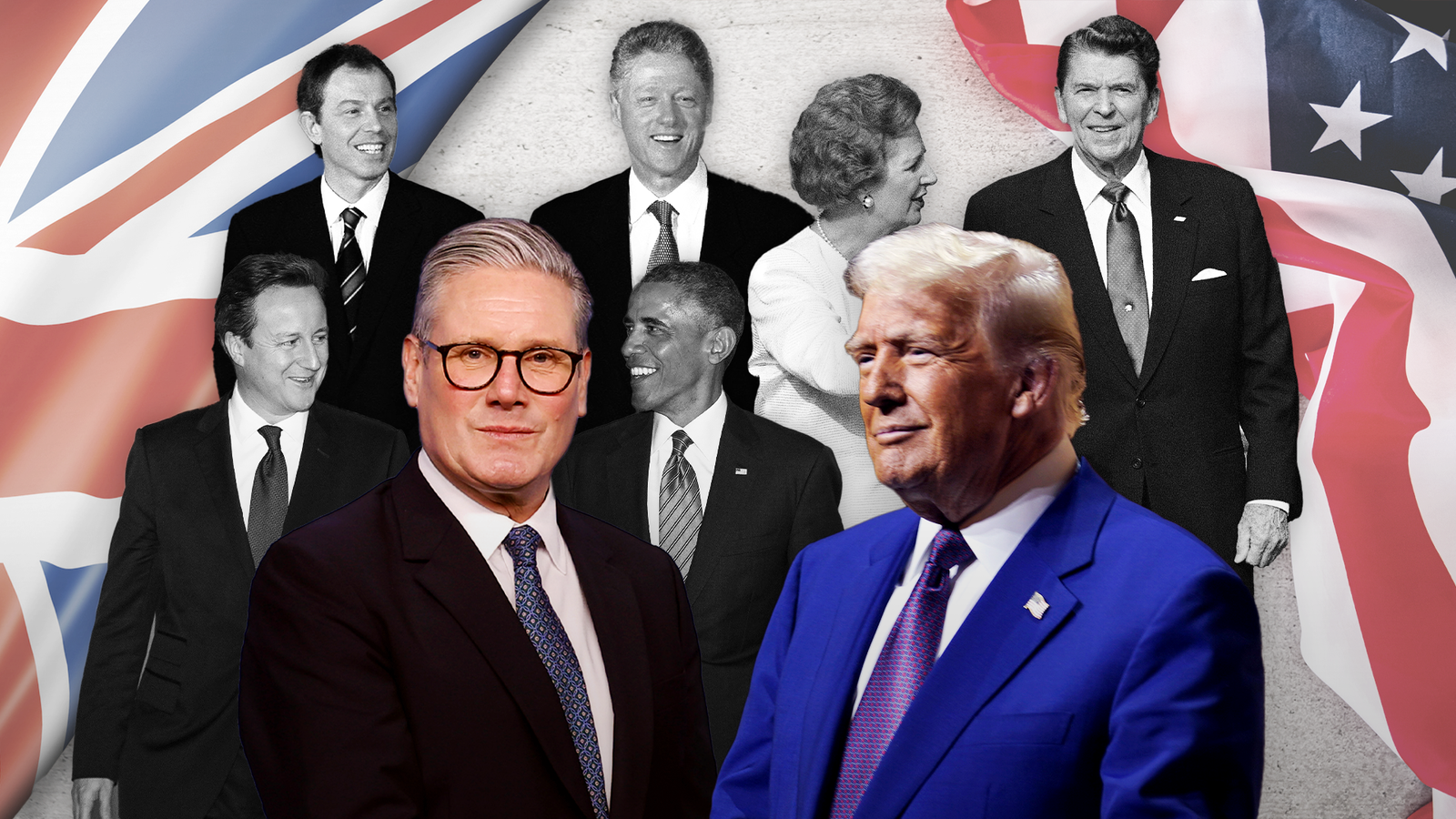Politics
Starmer’s challenge is to see if usual rules of special relationship still apply under Trump after years of love bombing

The Importance of Prime Ministerial Visits to the White House
Visits by British Prime Ministers to the White House are underscored with a peculiar dynamic—one that often holds greater significance for the British than for their American counterparts. This imbalance was starkly illustrated by Donald Trump’s casual announcement of granting Sir Keir Starmer, the UK Prime Minister, a meeting. Trump, known for his brash communication style, remarked, "We have a lot of good things going on. But he asked to come and see me, and I just accepted his asking." This offhand comment highlighted the asymmetry in the perceived value of these meetings. While British leaders often view such visits as pivotal moments to strengthen the UK-US "special relationship," American presidents rarely accord them the same level of importance. The meeting between Starmer and Trump, however, took an intriguing turn when Starmer publicly disagreed with Trump’s characterization of Ukrainian President Volodymyr Zelenskyy as "a dictator." This public dissent sets the stage for a potentially fraught encounter.
Navigating the Trump-Starmer Meeting with Caution
Assuming Trump does not cancel the meeting in a characteristic fit of pique, Starmer will need to tread with extraordinary caution in the Oval Office. Downing Street insiders have expressed anxiety about "not poking the bear," a metaphor that reflects the delicate nature of dealings with Trump. Historical precedent warns of the risks of mishandling such meetings. Previous leaders have often found themselves in awkward situations while attempting to nurture the special relationship on American soil. Since his re-election, Trump has signaled a further dwindling of interest in traditional alliances, complicating Starmer’s task. Unlike his predecessors, Trump has not extended warm greetings to neighboring countries; instead, he imposed tariffs on Canada and Mexico and even mused about U.S. territorial expansion. This unconventional approach raises questions about how Starmer will navigate the meeting without triggering Trump’s erratic impulses.
Historical Context: The UK-US Special Relationship
The relationship between British Prime Ministers and U.S. Presidents has historically been fraught with moments of both harmony and tension. One of the most iconic partnerships was between Margaret Thatcher and Ronald Reagan, often described as a political romance. Their relationship deepened during the Falklands conflict in 1982, when Reagan defied his officials’ advice to support the UK’s expedition. However, even this-close alliance was not without its strains. Thatcher was unnerved by Reagan’s openness to nuclear disarmament discussions with Soviet leader Mikhail Gorbachev in 1986, prompting her to fly to Washington to rebuke him. Similarly, in 1990, during the Gulf War, Thatcher famously told George H.W. Bush, "This is not the time to go wobbly." These episodes underscore the complexities of maintaining a strong alliance with U.S. leaders, who often prioritize American interests over bilateral relationships.
The Blair-Clinton Connection: A Tale of mutual benefit
Tony Blair’s relationship with Bill Clinton offers another fascinating case study in the dynamics of UK-US relations. Despite their ideological alignment, Blair found dealing with Clinton more challenging than interacting with George W. Bush, whom he described as "straightforward." Clinton’s presidency was marked by personal scandals, most notably the Monica Lewinsky affair. During this turmoil, Blair demonstrated loyalty by visiting the White House and deflecting attention from Clinton’s troubles during a joint press conference. In a private moment, Clinton was heard saying to Blair, "I owe you one." This episode highlights the personal dimensions of these relationships, where mutual support can sometimes outweigh political differences. Blair also succeeded in persuading Clinton to commit U.S. forces to peacekeeping efforts in the Balkans, showcasing the potential for cooperative achievements.
The Challenges of the Modern Era
In recent years, the UK-US relationship has faced unprecedented challenges. Gordon Brown’s tenure was marred by a diplomatic misstep when Barack Obama’s administration returned a loaned bust of Winston Churchill and reciprocated a historic gift with a bag of CDs. David Cameron’s efforts to maintain a strong alliance with Obama were complicated by the Brexit referendum, during which Obama warned that the UK would be "at the back of the queue" for a trade deal if it left the EU. Since Joe Biden’s presidency, the rapid turnover of UK Prime Ministers has hindered the establishment of a cohesive relationship. Additionally, Biden has openly identified more with his Irish heritage than his English roots, further distancing the two nations. Against this backdrop, Starmer’s meeting with Trump represents a critical moment to reassess whether the traditional assumptions of the special relationship still hold.
Overcoming Political and Cultural Divides
Despite the historical ebb and flow of UK-US relations, there is precedent for overcoming political and cultural differences. For instance, when Ronald Reagan met Neil Kinnock, then leader of the Labour opposition, their encounter was marked by disagreement over Kinnock’s unilateral nuclear disarmament policy. However, Kinnock later abandoned this stance, illustrating the influence U.S. leaders can wield. More recently, Sir Keir Starmer has gotten off to a better start with Trump, having been hosted "graciously" at Trump Tower during the presidential transition. As Starmer prepares for his White House meeting, he and Foreign Secretary David Lammy will aim to maintain this positive tone. The challenge for Starmer is not only to navigate Trump’s unpredictable nature but also to determine whether the rules of the special relationship still apply in this new era of U.S. foreign policy.